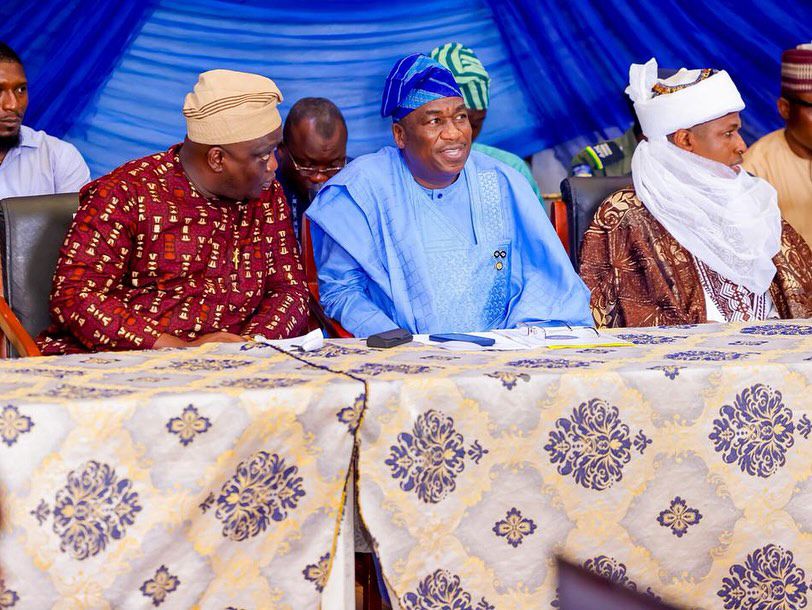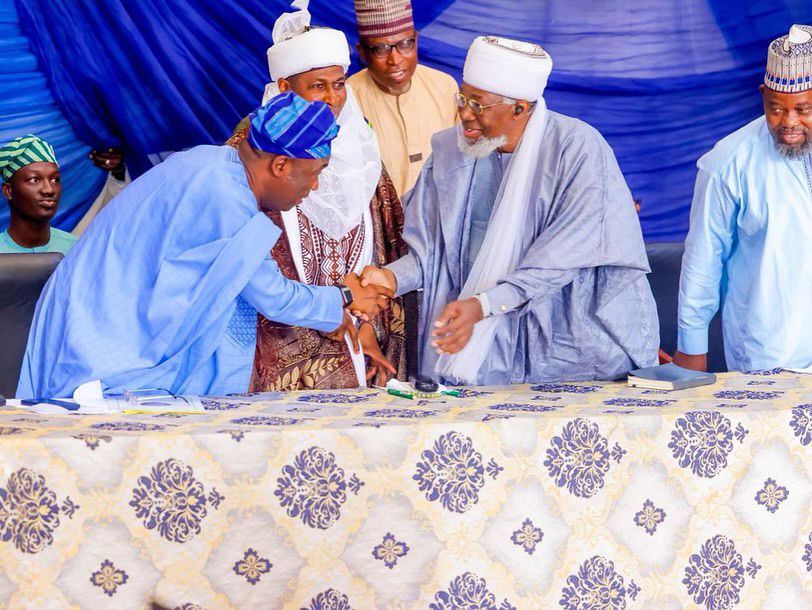Lagos State Governor, Babajide Sanwo-Olu, has called for more structured cooperation between the government and religious leaders, saying clerics remain vital voices in sustaining peace, improving public understanding of policies, and guiding communities through social challenges.

Represented by his deputy, Dr Kadri Obafemi Hamzat, at an Imams Capacity Building Workshop in Lagos, the governor noted that religious messages delivered from pulpits across the state still shape public opinion in powerful ways.

He said tapping into that influence could help counter misinformation and support development programmes.

The workshop, hosted at the Lagos Central Mosque, was organised by the Council of Imams and Ulamas under the leadership of the Grand Chief Imam of Lagos, Sheikh Sulaimon Oluwatoyin Abou-Nolla, in partnership with the Ibile Muslim Community and the Zakat and Sadaqat Foundation. Senior government officials, scholars and religious leaders were also present.
Ansar-Ud-Deen National Missioner, Sheikh Abdurrahman Ahmad, used the gathering to call for “consistent, respectful and meaningful engagement” between the state and religious institutions. He said clerics remain reliable partners in nation-building but are often consulted only when tensions escalate.
According to him, a stronger feedback system between government and religious leaders would help resolve existing imbalances and ensure policies are better understood at the grassroots.
The Chief Imam of Lagos echoed this position, urging Imams to take a more proactive approach to community leadership. Sheikh Abou-Nolla described Islam as a faith built on peace, service and solutions, saying the current state of the nation requires religious figures to engage more deliberately with both government and society.
He added that a well-managed partnership between the state and faith institutions remains “a beacon of hope” for peace, unity and national progress.
One of the key sessions at the workshop featured a health presentation by Dr Umar Sanda, who warned clerics about the rising incidence of silent killer diseases. He explained that conditions like hypertension, diabetes, kidney disease, heart ailments, hepatitis and glaucoma often progress undetected until they cause severe harm.
Dr Sanda urged Nigerians to adopt healthier lifestyles, avoid stress and smoking, and go for regular medical checks. Prevention, he said, remains far cheaper and far safer than treatment, and community leaders can play a major role in passing that message on.
Another speaker, Professor Saheed Timehin of Lagos State University, advised Muslim scholars to uphold Islamic ethics when debating issues, especially on social media. He expressed concern that disagreements among clerics were increasingly turning into personal attacks rather than principled conversations.
“It is possible—and even healthy—to disagree,” he said, “but it must be done with respect and truthfulness, focusing on ideas rather than personalities.”
CSP Raji Muhammad Jamiu, the Chief Imam of the Zone 2 Police Command, raised alarm over rising poverty among religious scholars, warning that the financial struggles of Imams could weaken their influence and reduce their ability to support community security.
He called for more economic empowerment for clerics, saying an Imam with a stable source of income will be better positioned to guide his community and contribute positively to society.









